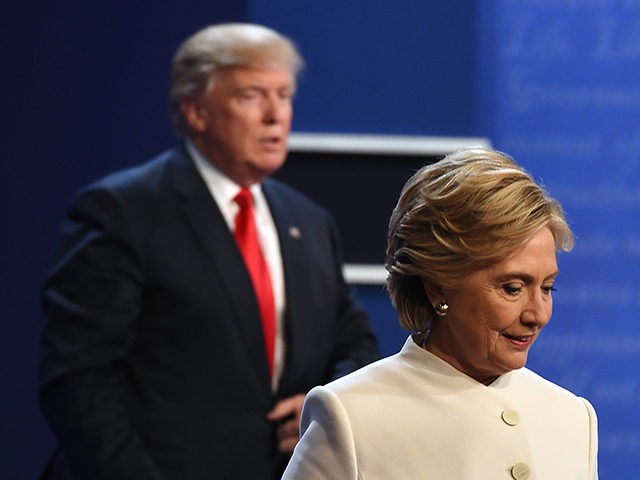Manhattan District Attorney Alvin Bragg is essentially using the same legal theory to potentially indict former President Donald Trump that Hillary Clinton’s campaign was fined for, argued former United States Attorney Brett Tolman.
Tolman asserted Saturday that Bragg’s legal theory that Trump tried to hide a campaign expenditure by using his then-lawyer to pay porn actress Stormy Daniels $130,000 in alleged hush money before the 2016 presidential elections would have applied to Clinton when her campaign hid a payment for the phony Russian pee dossier against Trump as “legal fees.”
Former New York City police officer and conservative pundit John Cardillo tweeted, “Bill Clinton paid Paula Jones $850,000 and no one cared.” Tolman tweeted in response, “And the Hillary Campaign was actually fined for hiding the Steele Dossier payment under ‘legal fees’ — essentially the same legal theory on the Stormy Daniels payment the DA is running criminal investigation of Trump.”
Indeed, the Federal Election Commission (FEC) in March 2022 fined Clinton’s 2016 presidential campaign and the Democratic National Committee for not properly disclosing payments for the so-called pee dossier that the DOJ and FBI relied on to investigate Trump for alleged Russian collusion.
Campaigns are supposed to report expenses over $200 and disclose the purpose of the expense. However, the Clinton campaign and the DNC funneled their payments for the dossier — totaling more than $1 million — through the Democrat law firm Perkins Coie.
According to the FEC, Perkins Coie paid opposition research firm Fusion GPS more than $1 million in 2016 for the dossier. Perkins Coie was then paid $175,000 by the Clinton campaign and about $850,000 by the DNC in July and August 2016 — around the same time the FBI claimed they opened their investigation on the Trump campaign.
The payments were not disclosed until Kash Patel, lead investigator for then-House Intelligence Committee Chairman Devin Nunes (R-CA) uncovered them.
The FEC fined the Clinton campaign $8,000 and the DNC $105,000 for reporting the payments as “legal services” and “legal and compliance consulting” instead of as opposition research, the FEC said.
George Washington University law professor and criminal defense attorney Jonathan Turley also noted in a recent column on the potential indictment against Trump that “Hillary Clinton faced a not-dissimilar campaign-finance allegation.” He wrote in The Hill:
Last year, the Federal Election Commission fined the Clinton campaign for funding the Steele dossier as a legal expense. The campaign had previously denied funding the dossier, which was used to push false Russia collusion claims against Trump in 2016, and it buried the funding in the campaign’s legal budget. Yet, there was no hue and cry for this type of prosecution in Washington or New York.
Although Bragg cannot bring charges against Trump for federal violations, Turley said he could bring state charges under Section 175 for falsifying business records, based on the claim that Trump concealed the hush-payments as “legal expenses” to violate federal election laws.
As Turley noted, a Section 175 charge would normally be a misdemeanor, but Bragg could try to convert it into a felony by showing that “intent to defraud includes an intent to commit another crime or to aid or conceal the commission thereof.” The crime, Turley speculated, is that the federal election violations, which he noted the Justice Department previously declined to charge.
Epoch Times show host Hans Mahncke — who followed the Russia collusion hoax closely — also agreed with Tolman: “Probably the most important thing anyone has said since the pending arrest reports came out. Hillary claimed the Steele reports were legal fees. That’s not just essentially the same as what Trump is being charged with, it is the same.”
“Why wasn’t Hillary arrested?” he tweeted to Bragg.
Follow Breitbart News’s Kristina Wong on Twitter, Truth Social, or on Facebook.

COMMENTS
Please let us know if you're having issues with commenting.